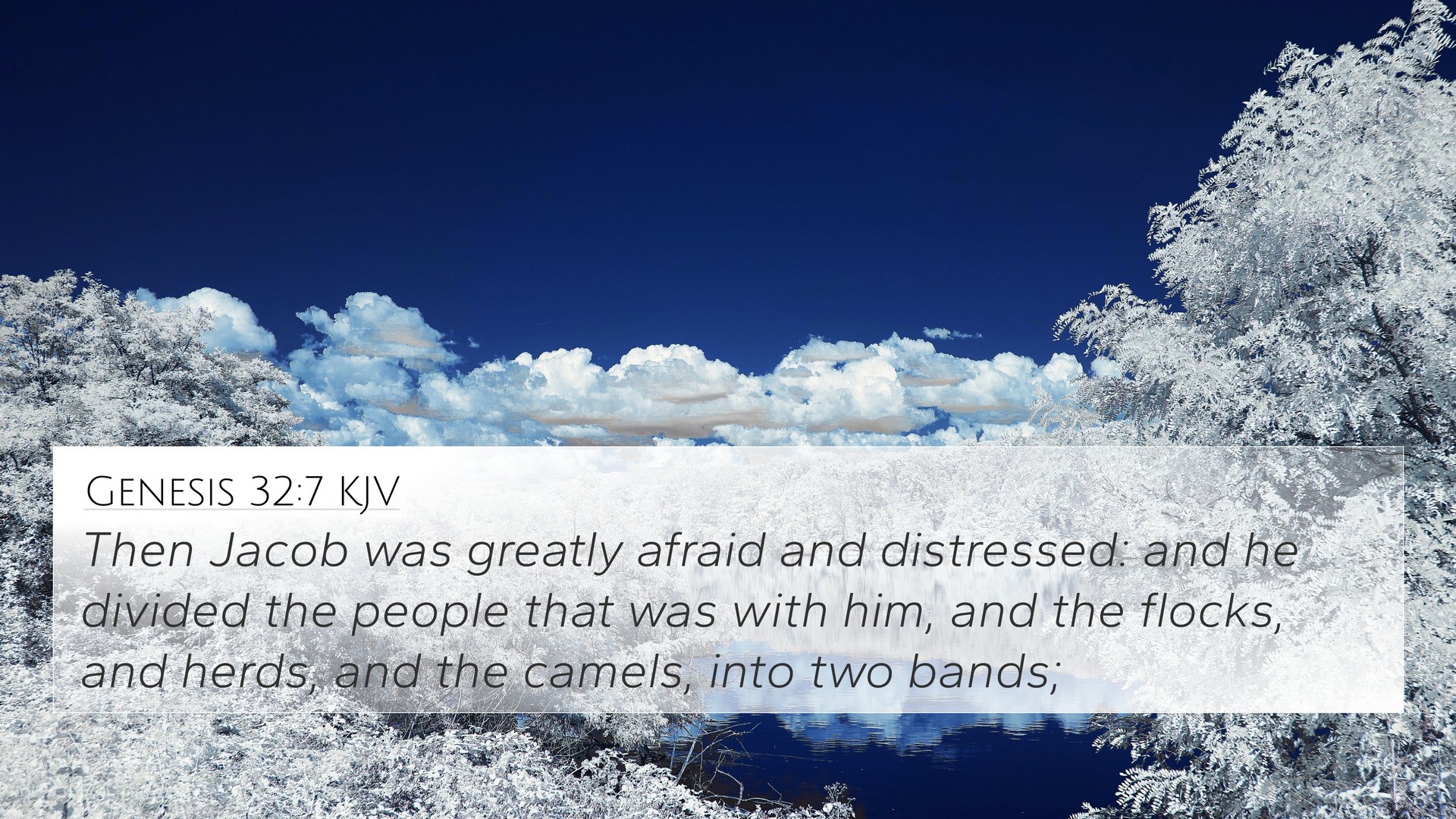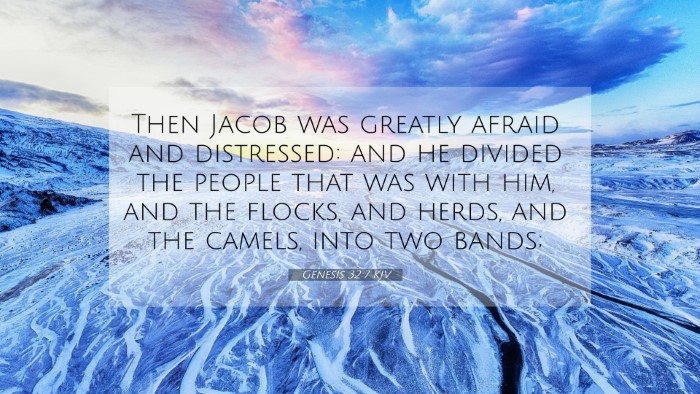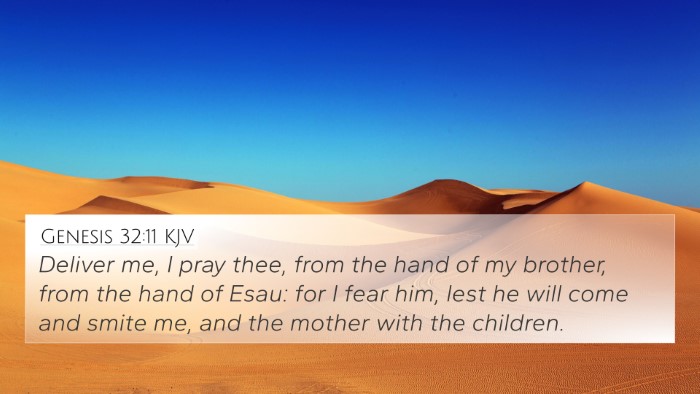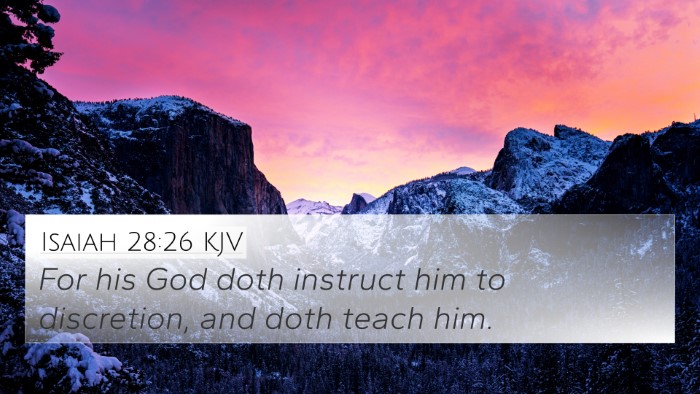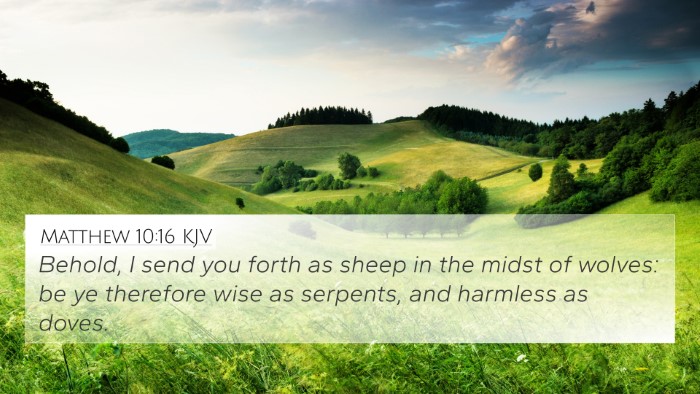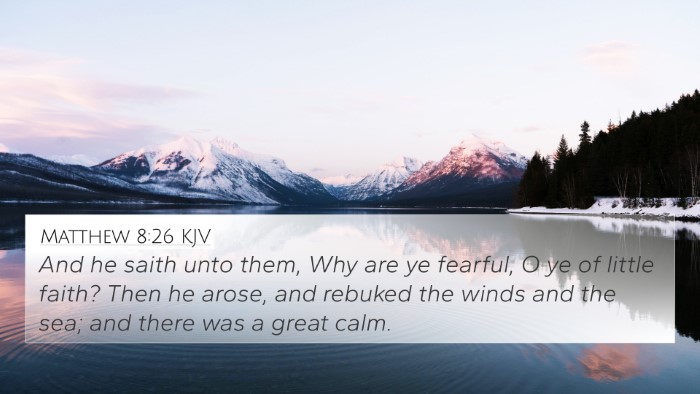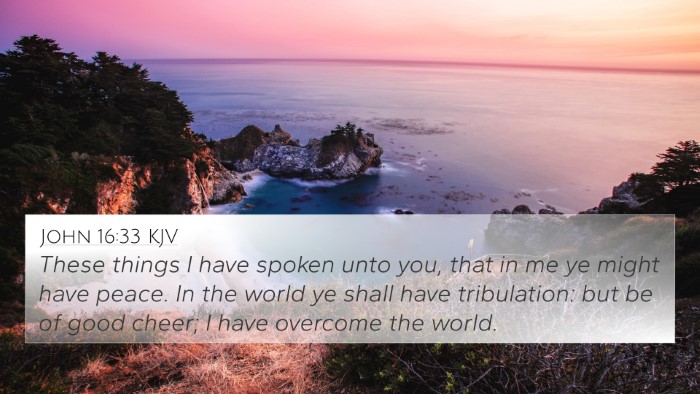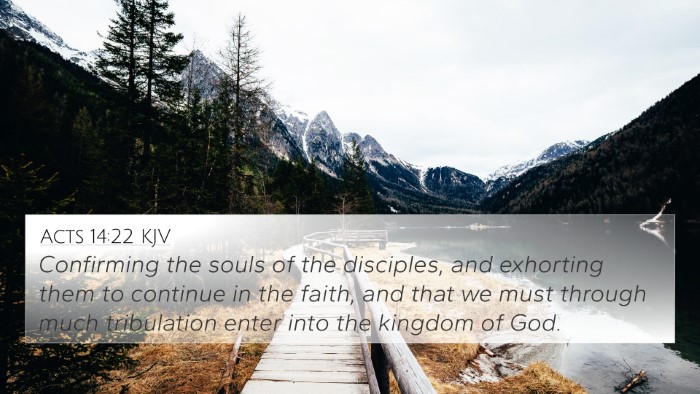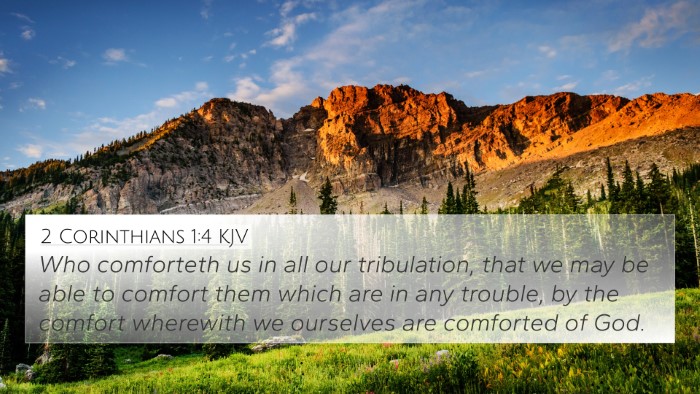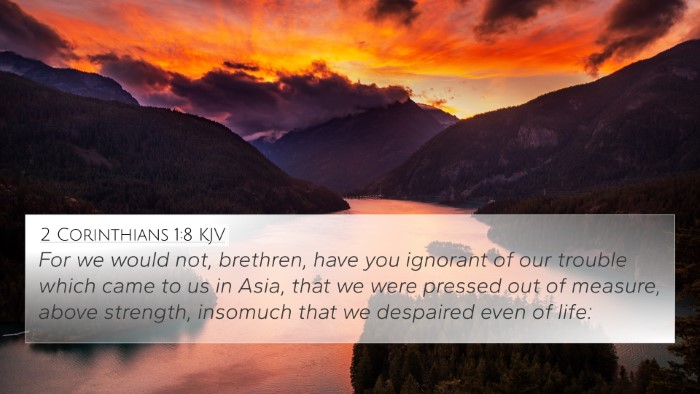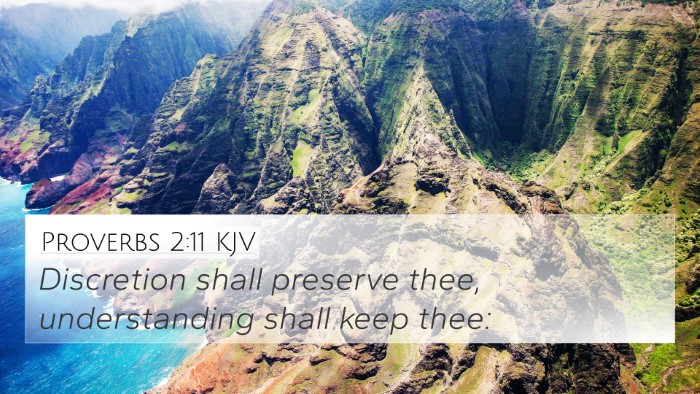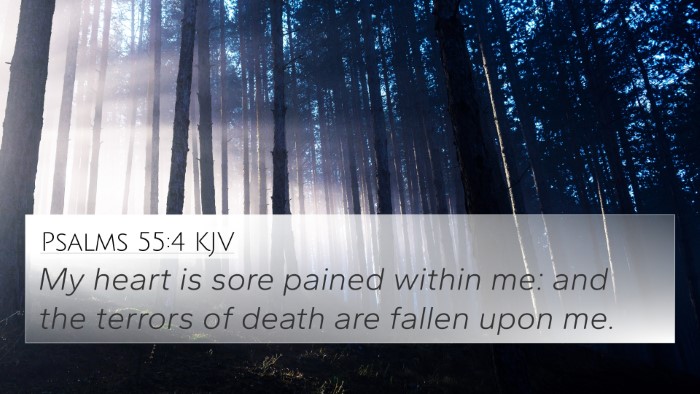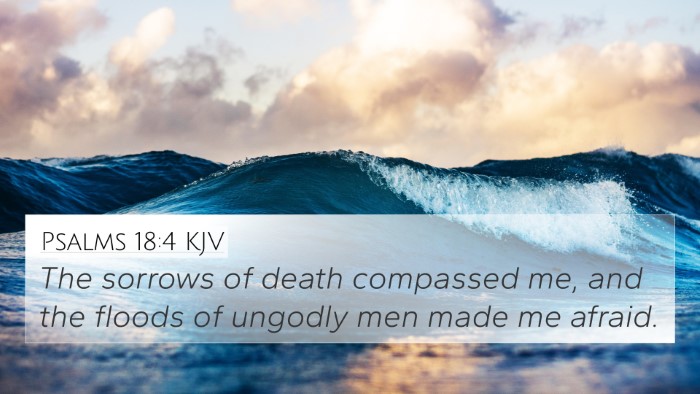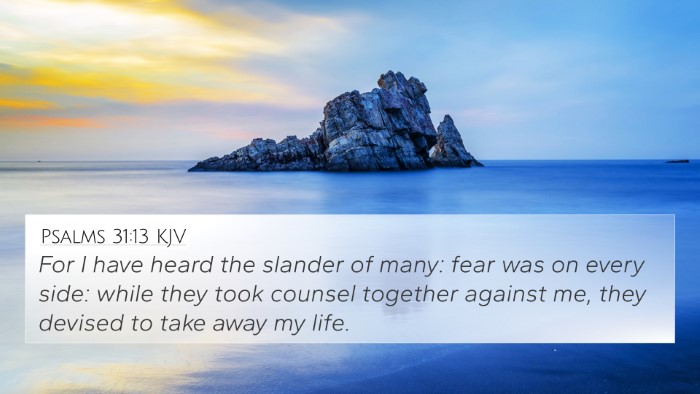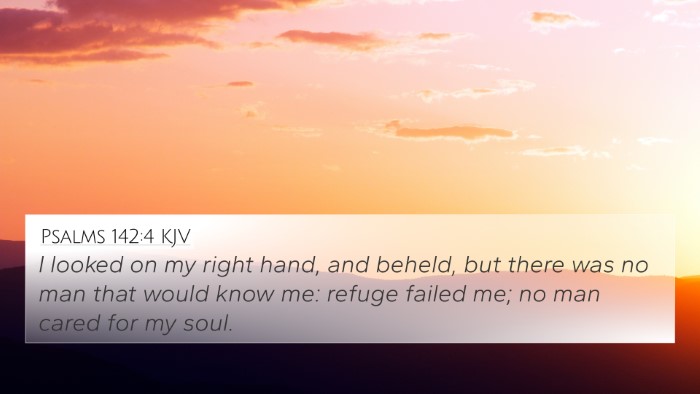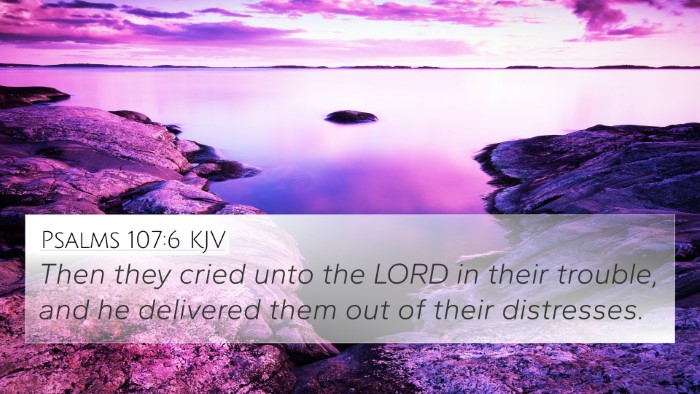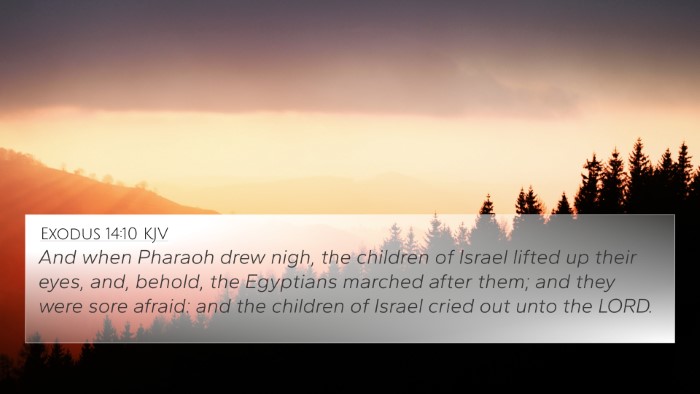Understanding Genesis 32:7
Genesis 32:7 states, "Then Jacob was greatly afraid and distressed, and he divided the people that were with him, and the flocks, and herds, and camels, into two companies." This verse captures Jacob's intense fear as he prepares to encounter his brother Esau, highlighting themes of anxiety, strategy in preparation, and the complex nature of human relationships.
Contextual Overview
In the broader context of Genesis, this moment occurs after Jacob has spent years away from his homeland and is now returning. He has left behind the deceitful act of taking Esau's blessing and is confronted by the reality of their fractured relationship.
Commentary Insights
- Matthew Henry's Commentary: Henry elaborates on Jacob's fear, noting that it reflects a common human experience of anxiety when facing past transgressions. The division of the people symbolizes a prudent strategy to mitigate potential loss should conflict arise.
- Albert Barnes' Notes: Barnes discusses the emotional turmoil Jacob faces, emphasizing that his fear is rooted in guilt and the uncertainty of Esau's response. This highlights the need for reconciliation and the burdens of unresolved conflict.
- Adam Clarke's Commentary: Clarke touches on the practical aspects of Jacob’s actions, explaining that the division into two companies was a tactical move aimed at saving at least part of his family and possessions. It reflects Jacob's desperation and forethought in dealing with a tense situation.
Thematic Connections
This verse resonates with various themes in the Bible, such as:
- Fear and Anxiety: Jacob's fear mirrors the emotional struggles faced by many biblical figures (e.g., Moses in Exodus 3:10-12, and David in Psalm 56:3).
- Human Relationships: Jacob and Esau’s fraught relationship serves as a focal point for exploring themes of forgiveness and reconciliation (see also Luke 15:11-32, the Parable of the Lost Son).
- Preparation and Strategy: Much like David’s strategic retreats in 1 Samuel 19:11, Jacob’s planning showcases the balance between faith and practical wisdom.
Cross-References for Genesis 32:7
- Genesis 27:41-45: The roots of Jacob’s fear stem from Esau's vow of revenge.
- Genesis 33:1-4: When Jacob finally encounters Esau, the reconciliation that occurs stands in stark contrast to his fears.
- Exodus 3:10-12: Moses' reluctance to face Pharaoh reflects similar feelings of anxiety in the face of returning to confront a challenging situation.
- Psalm 56:3: "When I am afraid, I put my trust in you." This verse provides a scriptural counterpart highlighting the response to fear.
- Luke 15:11-32: The theme of reconciliation plays out in the story of the Prodigal Son, paralleling Jacob's anticipated encounter with Esau.
- Philippians 4:6-7: This New Testament encouragement against anxiety reminds believers to bring their concerns to God, much like Jacob's initial prayer in the face of fear.
- Proverbs 21:31: This verse emphasizes the role of preparation, much like Jacob’s tactics when faced with uncertain outcomes.
Exploring Connections Between Bible Verses
Genesis 32:7 encourages a deep exploration of other scriptures, unveiling the interconnectedness between human fears and the divine response. The verse acts as a junction, linking stories of personal strife, divine intervention, and the necessity of human humility.
How to Use Cross-References
Utilizing a Bible concordance or a Bible cross-reference guide can greatly aid in drawing connections between verses like Genesis 32:7 and others. Understanding how themes such as fear, preparation, or reconciliation find echoes throughout Scripture can enrich one's study.
The Importance of Linkages in Scripture
Identifying connections between Old and New Testament narratives is crucial for grasping the full scope of biblical teachings. As demonstrated through Jacob's anxiety, the themes resonate across various texts, particularly in the relational dynamics within families or communities.
Concluding Reflections
Genesis 32:7 serves as a profound reminder of the struggle with fear and the complexities of reconciliation. Through understanding not only this verse but also its connections to others, we gain a fuller picture of God's guidance and the human experience. Engaging in a cross-referencing Bible study invites believers to delve deeper, uncovering the rich tapestry of God's Word and its relevance today.
